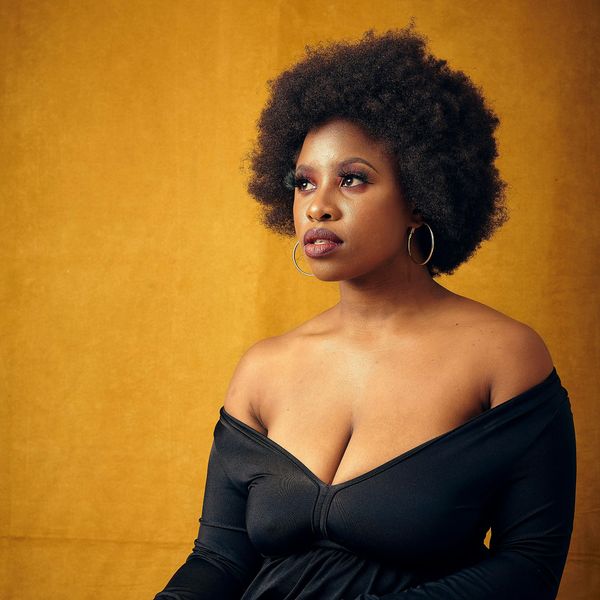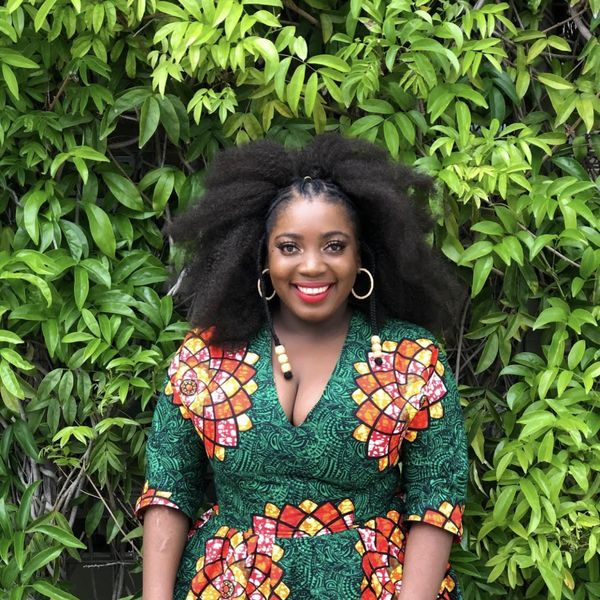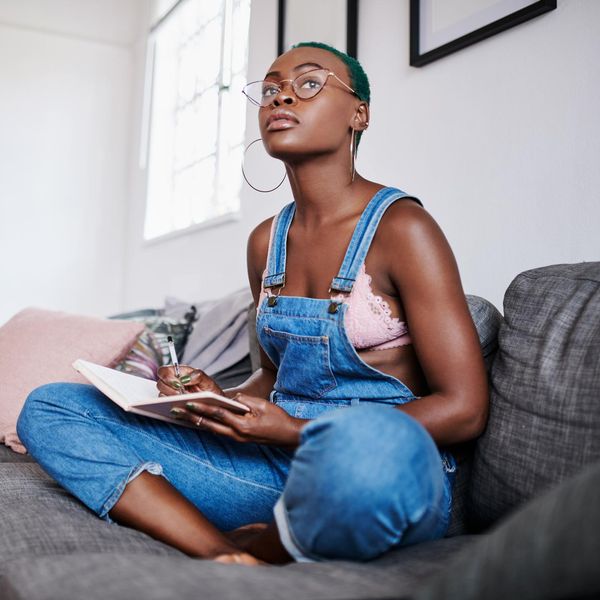
A few years ago, there was a show that came on Lifetime that I actually really liked. It was called UnREAL and it was a take on what goes on behind the scenes of the franchise The Bachelor/Bachelorette (on ABC). Word on the street is that some former producers actually wrote for the show which meant that a lot of the storylines were based on real life situations. Anyway, because a lot of reality television is really anything but real, and oftentimes features a lot of folks who are altering — if not flat-out manipulating — storylines, it was interesting to see (in the third season) one of UnREAL's field producers and master manipulators, Rachel Goldberg, go through a course that she called Essential Honesty. Basically, via a book and some audio sessions, she was reprogramming her mind to not lie — to always tell the truth, no matter what the cost. Trust me, that was quite the mission for her. That character could lie like water.
When I sat down to write this piece, that was the first thing that came to mind. Mostly because, there are a lot of us who also manipulate, if not flat-out lie, oftentimes to ourselves, in the real world. And in order to get out of some of the delusions, distractions and lack of personal accountability cycles that we find ourselves in, it's important that we send ourselves through our own versions of essential honesty.
And just how can you know if you're someone who falls into this category? How can you know for certain that you are indeed honest with yourself most of all? If you've read the content that I've written for this site long enough, you know that I'm big on questions leading to genuine answers. Today, I've got five that could help you to get to the root of whether or not you're as honest with yourself as you should be. But first, why is all of this such a challenge for so many people?
Why Do Folks Struggle with Self-Honesty?
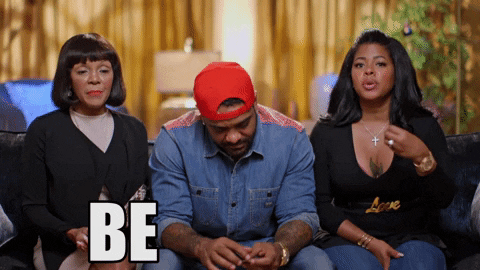
There's someone in my family who lies to themselves…a lot. So much, in fact, that I've had to remove them out of my life (check out "Estranged From A Family Member? Let That Guilt Go.") because when people aren't honest with themselves, it has the domino effect of them not being very honest with others either. And people who are dishonest? They are typically unpredictable. They play a lot of mind games. They don't know how to communicate without gaslighting, deflecting and passing the buck. In short, they are completely draining and exhausting.
How do folks get to that point and place? Chile, that is an article all on its own. Some people were raised by dishonest people and so they learn it from them. Some folks were so harshly disciplined as kids that they lie as a form of self-protection and they don't know how to break out of the pattern. Some people's self-esteem is so low that they've convinced themselves that if they lie to themselves, it will cause them to see themselves in a better light and project a "wholeness façade" to others. Some people lack total self-awareness and so they don't deal well with reality. The list goes on and on. What you can know for sure is someone who isn't honest with themselves can't really trust themselves either. And when you're in that kind of space, you're constantly at war within.
So, how can you know if you are truly honest with yourself? If you're someone who is — genuine; sincere; honorable (and consistent) when it comes to your personal principles and intentions; an individual who operates from a place of fairness; not pretentious; one who operates above board, and is true to yourself, no matter what and above all else? If you can nod your head up and down for all of this, you're in a pretty good space on the self-honesty tip.
However, if after reading that list, you're still somewhat unsure, here are five questions that will hopefully help to bring forth some clarity.
1. Can You Tell the Difference Between Opinions and Facts?
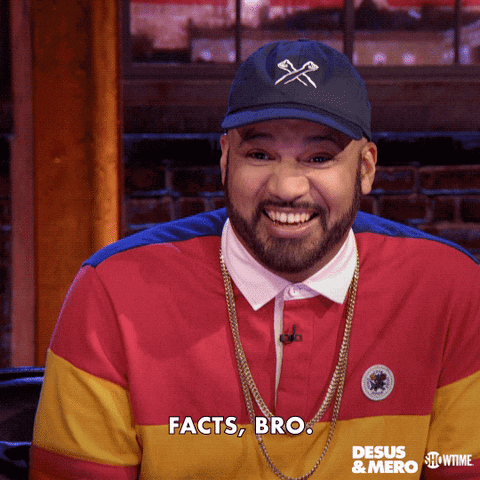
Something that is absolutely hilarious to me about social media is the fact that so many folks will spend all day getting triggered over other people's opinions. More times than not, it's because they have gotten so high-minded about their own opinion that they actually think what they think is a fact. So, when someone challenges what they say, they react as if what they believe is the gospel. Lawd. Egos are really something, ain't they?
When it comes to a telling sign of whether or not you're truly honest with yourself, one of the first things you should definitely think long and hard about is if you know the difference between an opinion and a fact. An opinion is a personal view or attitude. A fact is a piece of information that is a verifiable truth. And no, these are not one and the same.
People who think their opinions are the gospel are unstable in the sense that one, they are basically their thoughts (and sometimes their actions as well) solely on perspective or emotion and two, because of that, they can be all over the place because perspectives and feelings are subject to change, to the point of oftentimes being pretty fickle. The problem with that is if you don't recognize an opinion for what it is, you can tell yourself it is a fact — the truth or reality of something — when it's any and everything but…and that can make for some pretty poor decision-making.
So yeah, I would definitely say that one way to know that you are honest with yourself is if you're able to differentiate between your opinion and actual facts. For instance, the reason why you and your ex didn't work out? You are going to have your opinion and so is he. OK, but what are the actual facts? Feel me?
2. Can You Only Handle Praise, Never Criticism?
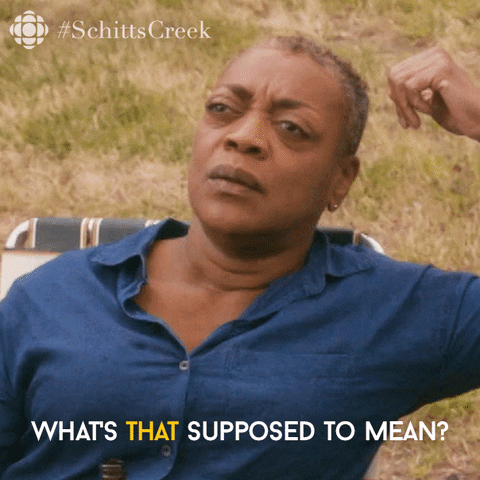
One thing about most honest people is they're considered to be decent human beings (I say "most" because some folks are honest about being jerks or assholes; let's be real). They strive to do what is fair and right. Words like "ethical", "law-abiding" and "above board" are synonyms for honesty and they know it and live it. And here's the thing — the reality is, if you want to be this kind of individual, you have to be always open to experiencing personal growth and evolution. This means that you can't always be told what you want to hear; instead, you've got to be willing to let people call you out on your ish. More importantly, you've got to be willing to be real with yourself when you know that you aren't operating from high vibration type of space.
You know, we're living in a world that seems to be creating more and more narcissists by the day. One thing about a narcissist is they have a super-inflated ego because they're all about receiving praise without being able to take much criticism. A part of the reason why is because they have lied to themselves for so long that they believe they've got very few, if any, flaws. Chile, we've all got flaws and areas to work on. Anyone who feels otherwise, they are definitely lying to themselves. So yeah, when it comes to personally evaluating if you are truly honest with yourself or not, it's also important to ask yourself if you are open to criticism (from people you trust and know have your back) as you are to praise. Because another thing about honest people is they are pretty practical and to think that you can only live in a world where folks are applauding you…it really doesn't get much more unrealistic (and semi-ridiculous) than that.
3. Do You Chalk Everything Up to “Shaming”? Or Could You Be PROJECTING?
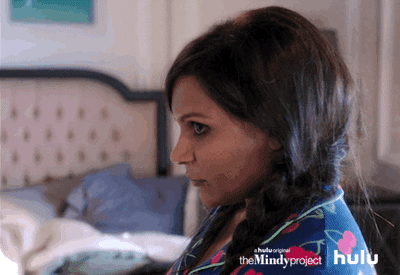
This "shaming" word wears me out sometimes. It's like any time someone is told something that they don't like or want to hear, someone is shaming them. I'm gonna leave the name of the example that I'm about to use out; however, I was watching a relationship coach talk about how one celebrity who is constantly talking about body image has actually been a walking contradiction. Here's why —while they say that men who don't want to date them due to their body size are "fat shaming", they have actually said that they feel as if their fame and bank account has warranted them a man who isn't their size. In other words, they think men should date them no matter their weight while they only want men with six-packs. Lord.
Does fat shaming exist? Sure, it does. However, in this particular case, it sounds a heck of a lot more like emotional manipulation. So, you want to pressure someone into dating you by telling them that if they don't, they are shaming your body type while you claim to not want to date someone your size yourself and that's all due to personal preference? Who is really doing the shaming? And as the relationship coach said in the video that I watched — are you actually being shamed or are you projecting your own insecurities onto other people?
Chalk it up to being an occupational hazard of sorts yet I am a pretty word-literal individual and if there are two words that get abused in society, more than just a little bit, it's "phobia" (which means a literal fear of something or one) and "shaming" (which, in this context, means to disgrace). Not everyone who disagrees with someone is "phobic" and not everyone who is not attracted to someone is "shaming" them. Sometimes, due to people's own insecurities, they use these words to project how they feel about themselves onto others. Meaning, they try and make other people responsible for their own feeling; then they try and pressure others to overcompensate for where they don't feel very good about themselves. And that? That would be a form of projecting.
I know this particular point isn't discussed much. Oh, but it should be. If there is some area of your life where you feel not so great about yourself and so you try and make others make you feel good about you and then tell them that they are "shaming you" if they don't — that is a form of being dishonest with yourself. It's not someone else's job to overcompensate for where you feel inadequate. Believing otherwise? That would be a lie.
4. Do You Think Life Is About Being Happy All of the Time?

One of the biggest lies ever told in this society is that the goal of life should be to be happy all of the time. What in the world? To be happy is to be delighted in something or someone. To be happy means that something or someone is bringing you pleasure, contentment and/or joy. To be happy means that you feel fortunate and pleased. Listen, we live among fallible humans, not to mention that we are ones ourselves. So, how in the world, are we gonna be happy all of the time?
This is why, it's basically like fingernails on the chalkboard to me, whenever I'm in a session with a married couple who claims they want to end their marriage either because they are no longer happy in their relationship or worse, their spouse doesn't "make them happy" anymore. First of all, marriage is designed to mature you far more than it is supposed to keep you happy every second of the day. Second of all, it's no one's job to "make you happy". The key is to be delighted and content within yourself and then to find an individual who will complement that — and even then, it won't be all of the time because who is happy with themselves…all of the time?
That's why I'm far more interested in folks focusing on the word "healthy" (having good health, a vigorous mind, and being prosperous) over being happy. Because while doing what's healthy isn't always going to be pleasurable or pleasing, it will be what's best in the long run. People who are really honest with themselves accept this. People who are dishonest? Well, one of the things that they are constantly focusing on is finding people, places, things and cultivating ideas that will constantly keep them on a "happy high" — whether it's healthy for them or not. Hmph. Talk about living a lie.
5. Would You Rather Be Comfortable? Or Grow?
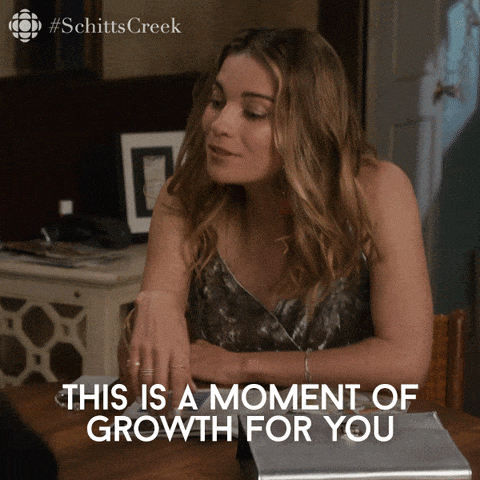
One more. Growing pains. We're all familiar with what they are, although, unfortunately, I think a lot of folks focus more on the "growing" rather than the "pain" part of the term. While it is totally human and quite understandable that you would want to do what you can to avoid feeling discomfort of any kind, people who are honest with themselves know that if they want to mature and progress in life, some things are going to be difficult, tedious, unpleasant, somewhat hurtful and shoot, downright hard. It's an unavoidable fact (remember, honest people deal in facts).
Meanwhile, folks who lie to themselves, they will find every way to avoid this reality or they will remain stagnant because they would prefer to be comfortable more than they would like to grow. As a direct result, they never really become the full totality of who they were meant to be all along. On the flip, those who are honest with themselves, they will be the first to admit that some things weren't easy and some seasons were damn near excruciating; however, since it caused them to become who they are, it was all worth it. They can honestly say so.
Those who are close to me know that lying is something that I loathe. That's why the Shakespeare quote at the top of this piece is such a favorite one of mine.
While being dishonest on any level ain't good, if there is anyone who you should be honest with, make sure it is yourself. Knowing the genuine version of you, then operating from that space, may not be easy. Oh, but it's worth it because you can trust who you are and why you are. That develops a level of self-trust that is unmatched. And when you trust yourself, you're on the path to so much more and better than when you're out here…lying. Worst of all — TO YOU.
Featured image by Getty Images
- How To Get Out Of Feedback Loops, Relationships - xoNecole ... ›
- Being At Peace With Yourself - xoNecole: Women's Interest, Love ... ›
Your December 2025 Monthly Horoscopes Are All About Surrender & Alignment
December is about letting go. We end the year with the need for more peace, reflection, and rejuvenation, and that is exactly what December is providing for us. The Sun is in Sagittarius, and anything is possible. This is the month to believe in that and to know that the universe is supporting you. With a Supermoon in Gemini as we begin the month as well, we have an opportunity to gain the closure we have been looking for this year and to wrap up old projects, ideas, and communication breakthroughs.
This is the month to make your peace the priority and let go of trying to control the way the tides are turning. Trust in your new beginning, and give yourself time to prepare for it this month.
A big part of the clarity that is coming through this month is due to Neptune going direct in Pisces on December 10, after being retrograde here since July. With Neptune now direct, we are able to see our inspiration and creativity a little more clearly, providing the perfect energy for dreams and manifestation to be built upon. The smoke is clearing, and it’s up to you to decide what you want to do with this newfound clarity that this transit is bringing. Mercury also moves back into Sagittarius on December 11, which is great for communication and clarity, and the adventures you were trying to see through at the beginning of November come around for you again with greater purpose and support.
On December 15, Mars enters Capricorn until the end of January 2026, and this is the extra push we need to make important changes and to be on the path towards greater abundance, stability, and prosperity. Mars in Capricorn takes care of business, and we have extra energy at our disposal during this time to do so. This transit is an ideal time to focus on your career or financial goals for next year and to start putting some of these plans into motion now. A few days later, we have the New Moon of the month, which will be in Sagittarius on December 19, and this is the perfect New Moon to manifest.
The energy is high, magic is in the air, and it’s all about moving forward with the new beginnings that are inspiring you and bringing you joy to think about right now.
Capricorn Season officially begins on December 21, and this earth sign energy is how we heal, gain closure, and build new foundations in our world. With Venus also moving into a Capricorn a few days later, there is something about peace, prosperity, and security that we are gaining in life and in love as we close out the year, and this is what we need right now. This month is about reflecting on what was, letting go of old hurt, and renewing. December is an ending and a new beginning in one, and there is magic in this space to be created.
Read for your sun and rising sign below to see what December 2025 has in store for you.
 AriesKyra Jay for xoNecole
AriesKyra Jay for xoNecoleARIES
December is a full-circle moment for you, Aries. You are seeing the gifts in your world and have a lot of gratitude for the way things have come about for you as of late. There are culminations in your world that are providing you with more abundance, stability, and community, and you are exactly where you are meant to be this month. With the Sun in a fellow fire sign and in your 9th house of travel for most of the month, December is a good time to get out of your comfort zone, explore the world around you, and get your body moving.
Mars, your ruling planet, also makes a change and moves into Capricorn on December 15, which will fuel your inspiration and power in your career space. You are making a lot of professional progress as we close out the year; however, make sure to be more mindful of your competitive drive right now. The New Moon on December 19 is the perfect opportunity for you to create some new plans and goals when it comes to traveling, education, and where you want to gain some new inspiration in your world. Overall, this is a month of things coming together for you serendipitously.
 TaurusKyra Jay for xoNecole
TaurusKyra Jay for xoNecoleTAURUS
December is about trusting your intuition, Taurus. You have a lot on your mind this month, and it’s best to delegate, communicate, and allow yourself some relief by opening up to someone and not feeling like you have to hold everything in. As we begin the month, we have a Supermoon in Gemini happening in your house of income, and the plans and projects you have been building here come to fruition for you now. This is the time to gain clarity on your financial world and to take a look at what spending habits you want to let go of here as well.
With Venus in your 8th house of shared resources for most of the month, you are doing a cleanse on your commitments, partnerships, and business ventures. You are taking a look at what you want to dedicate yourself to in the future, and what commitments you may need to let go of now in order to be in the space you truly want to be, both financially and within some of your relationship dynamics. Before we end the month, we have a New Moon in this same area of your chart, and it’s time to look at the opportunities that are presenting themselves and to trust your internal guidance system to lead you forward.
 GeminiKyra Jay for xoNecole
GeminiKyra Jay for xoNecoleGEMINI
You are moving forward fearlessly this month, Gemini. December is your month of love, passion, and dignity, and you are owning the light that you shine. We begin the month with the last Supermoon of the year, happening in your sign, and you are stepping up to the plate. You are showing up, owning how much you have grown this year, and allowing yourself to heal while also acknowledging that you have done your best and you deserve to have fun in the midst of the changes you are creating.
Mercury, your ruling planet, is officially out of retrograde, and you can use this energy to the fullest potential now. With Mercury in your 7th house of love, it’s time to speak from the heart and to talk about the things that matter and that are inspiring you right now to your loved ones. You never know what kind of epiphanies you may have when you open up the conversation to others. Before the month ends, you have a New Moon in this same love area of your chart, and this New Moon is all about manifesting romance, commitment, and abundance in your world.
 CancerKyra Jay for xoNecole
CancerKyra Jay for xoNecoleCANCER
December is an opening for more love, more joy, and more freedom in your life, Cancer. You have come to a place where you hold so much gratitude in your heart for where you are today and where your heart is shining, and things come together for you with more ease right now. With the Sun in your 6th house of health, work, and daily routines for most of the month, you are getting your ducks in a row while also putting more energy and effort into taking care of yourself, your priorities, and your well-being. This month surprises you in many ways, and it’s because you are showing up.
Mars and Venus both move into your house of love, relationships, marriage, and abundance this month, and you are making strides in your love life. You have both of these opposing forces on your side and are being recognized for the love you are while also receiving the love you want. This month, overall, is about focusing more on the positives in your world and letting your heart have its joy. Before December comes to an end, there is a New Moon in Sagittarius, and this is the perfect opportunity to create the plans you want to see through next year, especially when it comes to your work life, colleagues, business ventures, and health.
 LeoKyra Jay for xoNecole
LeoKyra Jay for xoNecoleLEO
The scales of karma are balancing, and they are balancing in your favor this month, Leo. December is your month of truth, and of seeing it clearly in your world. The Sun is in your house of romance, pleasure, and happiness for most of the month, and it’s time to relax, be in the present moment, and allow what is meant to be, to be. With a Supermoon in your 11th house of manifestation as December begins, this is a powerful month for seeing your dreams come to fruition, and for feeling like the intentions you have set this year are finally here for you now.
Mars also moves into your 6th house mid-month, and this is the perfect energy to have to move into the new year. You have extra energy at your disposal right now and are feeling fearless with what is possible for you and your daily routine. Before the month ends, we also have a New Moon in a fellow fire sign, Sagittarius, and this is a breakthrough moment for you and your heart. December, overall, wants to show you how loved and supported you are and will be doing so in magical, unexpected, and concrete ways.
 VirgoKyra Jay for xoNecole
VirgoKyra Jay for xoNecoleVIRGO
December is a month of victory, Virgo. You are showing up and experiencing some new successes in your world that move you forward on your path in life. With a Supermoon in your 10th house of career as we begin the month, the effort and intentions you have made this year come into full bloom, and you are being recognized for who you are and the good work you have done. This month is all about showing up and allowing yourself to be seen and loved, knowing that you deserve the support and opportunities you are receiving.
Mars moves into Capricorn on December 15, which brings the passion and excitement into your love life, hobbies, and little pleasures in life that light you up. You want to have fun this month and are going to be walking into the new year with this fearless, happy, and spontaneous energy within you. Before the month ends, Venus also enters Capricorn, and in this same area of your chart, you have a lot to look forward to and believe in right now. Overall, December wants you to be happy and will be doing everything possible to make that happen for you. This is your month to shine, Virgo.
 LibraKyra Jay for xoNecole
LibraKyra Jay for xoNecoleLIBRA
December is a month of opportunity for you, Libra. New doors open, and you are financially making breakthroughs this month because of it. December begins with a Supermoon in your 9th house, and you are getting a clearer view of where you have been making strides in your life and how it has all brought you here to this present moment of freedom. This month is showing you what happens when you are fearless with your purpose and when you believe in yourself and what you are worthy of.
Moving further into December, Mars moves into your 4th house of home and family mid-month, and you are closing out the year in your safe spaces. You are spending more time with your loved ones and taking the time to quiet your mind and listen to what your heart has been telling you. Before the month ends, we have a New Moon in Sagittarius, happening in an area of your life that deals with communication. This is a great time for getting the answers you have been looking for and for feeling more clear-headed and confident about the decisions you are making as you move into the new year.
 ScorpioKyra Jay for xoNecole
ScorpioKyra Jay for xoNecoleSCORPIO
Patience is a virtue this month, Scorpio. December is all about remaining patient and vigilant with what you are creating in your world, and knowing that the universe has your back. It’s time to be reminded of the power of hope, and this month is an opening to greater clarity in your life. There is a lot of energy in your financial zones right now, and this is providing you with new opportunities and new insight; however, the speed at which things come about for you may feel daunting. Keep your head up and eyes focused on what you want and know that you are more than worthy of receiving it.
With Mercury in your 2nd house of income this month, December is a good time to plant new seeds and to think about where you want to be financially a month from now or even a year. This month is asking you to think bigger and to think more long-term so that you can set the appropriate plans into motion now. We also have a New Moon in your house of income before the month ends, and this is when you will see more of your dreams come to fruition in this area of your life, and have more opportunities to build. Overall, December will be teaching you a lot, Scorpio.
 SagittariusKyra Jay for xoNecole
SagittariusKyra Jay for xoNecoleSAGITTARIUS
Sagittarius Season is here, and there is a lot in store for you this month, Sag. December is all about what you are dedicating yourself to. It’s about setting your intentions and putting the work in to back up your dreams, and about getting things in order so that when the new beginnings come, you are ready for them. The Sun and Venus are in your sign for most of this month, and there are a lot of eyes on you right now. You have the potential to create a new beginning for yourself, and it’s time to invest in yourself, your love life, and your dreams.
Mercury moves into Sagittarius on December 11, and this is giving you another opportunity to see through some of the plans that you had initiated in November. Mercury was retrograde in your sign last month, and there may have been some disruptions to your vision and plans for the future, and now this energy is turning around for you. Before the month ends, we also have a New Moon in Sagittarius, and you are walking through new doors fearlessly. You are catching others by surprise by your growth this month, and you are thinking a lot about your purpose, future, and plans for the new year.
 CapricornKyra Jay for xoNecole
CapricornKyra Jay for xoNecoleCAPRICORN
December is all about the vision, Capricorn. You are moving through a lot of changes and transformations this month, yet they are giving you a chance at a new beginning in the process. You are focused more on the future and what goals you want to manifest for yourself right now, and are ready to let go of what hasn’t been working for you. With the Sun in your 12th house of closure for most of December, this is your time for healing, but remember, healing doesn’t have to be isolating or boring; you can thrive while you renew, and you are this month.
Mid-month, the excitement picks up for you, and you are feeling more energized than you have in a while. Mars moves into Capricorn until the end of January 2026, and you are being proactive with your goals, intentions, and passions. You are a force to be reckoned with this month, and you are making things happen for yourself with confidence. Capricorn Season officially begins on December 21 this year, and this is definitely speeding up your healing process. You are breaking free from what was, and with Venus also moving into Capricorn before the month ends, you are leaving this year in high spirits and with love opening a new door for you.
 AquariusKyra Jay for xoNecole
AquariusKyra Jay for xoNecoleAQUARIUS
December is all about community, creativity, and manifestation, Aquarius. This is the month to work together with others to help bring your dreams to life. You are in a space of inspiration, empowerment, and beauty, and are creating more of this energy around you and in your world. Look out for what support comes your way this month and know that you don’t have to do everything alone to succeed. With the Sun in your 11th house of manifestation and friendship, your intentions are coming to fruition, and it’s time to celebrate with the people you love and to own how far you have come this year.
On December 19, we have a New Moon in Sagittarius, lighting up your life in all of the best ways possible. This is your New Moon of freedom, victory, and magic, and you are seeing new beginnings appear that you were once just hoping for. Before the month comes to an end, Venus moves into your 12th house of closure, and after an active and successful month, you are ready to relax, heal, and give your heart some of the attention it has been asking for. You are moving into the new year with the need to release and renew what hasn’t been working in your relationships, and you are finally ready to.
 PiscesKyra Jay for xoNecole
PiscesKyra Jay for xoNecolePISCES
December is a big month for you, Pisces. You are making some huge accomplishments this month, and are feeling like everything you have been through this year has been worth it for these moments that are coming to fruition for you now. The Sun is in your 10th house of career and reputation for most of the month, and this is where a lot of your focus is right now. You are claiming your successes and putting yourself out there in ways that not only serve you, but that inspire others as well.
Neptune officially goes direct on December 10, after being retrograde in your sign since July, and you are finally seeing things a little more clearly. You are feeling renewed inspiration and passion in your life, and your intuition is your strongest asset right now. Before December comes to an end, we also have a New Moon in your 10th house of career, and what happens now not only changes things for you in the present, but it also opens new doors and what is possible for you in the new year as well. Overall, you are on top of your game this month and are owning the joy and empowerment you feel.
Featured image by Kyra Jay for xoNecole
You're Over Him. Should You Wait Until After The Holidays To Say It?
When a client told me that she was seriously considering ending her relationship of 10 months before Christmas, I wasn’t surprised. That’s not a sneak diss on what she has going on with her man or anything; it’s just that I know that the holiday season (the month of December, more specifically) is a very popular time for folks to call things off. Between the pressure of bringing people around family and the urge to start off the new year with a clean slate — yeah, it makes sense.
At the same time, though, I do think that there is something to be said for ending things well — and when it comes to a break-up? During this time of the year? Before you make that official move, I just want to make sure that you’ve thought a few things through.
Things like what exactly? So glad that you asked.
How Serious Is the Relationship?
 Giphy
GiphyOkay, so if you’ve never heard of the “10-date rule” before, it’s basically the belief that after 10 consecutive dates with someone, it’s time to come to the conclusion that you are officially in a relationship with them. Personally, I have lived, observed and counseled enough people to say that when it comes to knowing where you stand with another person, you shouldn’t assume one damn thing — you should 1000 percent communicate your thoughts and listen to theirs in return.
That said, it is a bit different (wouldn’t you say?) if you’ve been out on a couple of dates with someone vs. if you’ve been with them for almost a year. So yeah, the first thing to ponder is how serious the dynamic is. Because honestly, if things are new and fairly casual, I don’t see how ending things, whether it’s the holiday season or not, is going to matter much — one way or another.
Remember, the holidays tend to be a very emotional time; however, if there isn’t a huge emotional investment going on, I don’t think anyone in a casual situation is going to look back and think that you are a villain (or Grinch), just because you’d prefer not to go on a third date with them. Good lord.
Next point.
Do You Want to Slow Down or End Things Entirely?
 Giphy
GiphyAre you totally over him or is it more like there are some things about the situation that you want to step back and ponder before making any major decisions about the future? If the answer is “B,” I recommend talking it over ASAP; especially if the two of you have been seeing each other for a while at this point. I say this because, whether you all are at the “meet the family” (or have already met the family) stage or not, when people are in a relationship, they tend to factor one another into their holiday plans — and it’s hella inconsiderate to not take this into account when it comes to the guy who you are seeing.
That said, I will say this: It’s mighty interesting that you are choosing this time of the year for this type of relational self-reflection — so, while you’re on this break, think about what it symbolizes.
For instance, are you slowing things down right now because you’re not sure if you want to go into a new year with him or are you doing it because spending the holidays together tends to represent that a relationship is far deeper than you want yours to be right now? Because really, you could’ve gone with the summertime (for example) not the holiday season to make this type of move…so, if your “pump the brakes” time is now, chances are, there is some subconscious subtext going on that you really should get to the root of.
Actual Holidays Are a DEFINITE No-No
 Giphy
GiphyYou would think that this wouldn’t need to be said yet since I once experienced a guy who decided to be a complete a*shole on my birthday some years back — yeah, let’s address it. Isn’t it interesting that one study revealed that during the first week of December, searches for how to break-up with someone go up by a whopping 60 percent? Then, if you add to that the fact that the holidays can sometimes be pretty stressful — well, while most folks with a heart and a conscience wouldn’t dream of breaking up with someone on an actual holiday, sometimes the pressure of everything can create the perfect storm for it to happen anyway.
That said, a super-duper throwback song by Neil Sedaka entitled, “Breaking Up Is Hard to Do” — and it absolutely is. Know what makes it worse: It happening on a holiday, so that every time the day rolls around, it’s bittersweet because you remember that someone broke up with you then.
Listen, just because you may not love or even like someone (in that way) anymore, that doesn’t mean that you shouldn’t treat them with some common decency and respect. Besides, don’t you also want your own Thanksgiving, Christmas Eve, Christmas Day, New Year’s Eve and New Year’s Day to be as unscathed and drama-less as possible?
Whatever you’re gonna do, you’re grown, chile. If you want my advice, though — put good energy into your future holiday seasons and avoid breaking up (or even having deep decisions) on actual holidays.
Definitely Keep the Golden Rule in Mind
 Giphy
GiphyProbably, until the end of time, there are going to be debates about whether karma is real (in the sense of it being scientifically proven). While quite a bit of data says that it isn’t and that it tends to be adapted and promoted by certain faiths more than anything — if you do believe that you reap what you sow (Galatians 6:7-8), at the end of the day, that is pretty much what karma is all about and, as I oftentimes say, karma (or sowing and reaping) don’t have expiration dates. In other words, what you have said and done can manifest in ways and at times that you never saw coming. A cautionary tale, indeed.
So yeah — even if you’ve been with ole’ boy for a while now, you’ve tried to make it work and you just don’t see a future for the two of you anymore, however you decide to end it, definitely keep the golden rule of doing unto others as you would want them to do unto you in mind.
Be as kind as you are honest. Be as empathetic (putting yourself in his shoes) as much as you possibly can. Avoid gaslighting him about how he feels about your decision. Be clear about how you’d like things to be moving forward (for instance, if you actually DON’T want to be friends afterwards, there’s no need to say it). And try not to do anything that will make him feel used — like waiting until after receiving a Christmas gift to end it (you’d be amazed by how many people do exactly that. SMDH).
The thing about break-ups is, live long enough, and you’re probably going to be on the giving and receiving end of one. So, even if you’re not really emotionally invested in your relationship anymore, be kind to your future self and be as respectful as possible throughout your…relational transition. Because even if you don’t feel like he deserves it, your feelings up the road, with someone else who may do the same thing to you…absolutely do.
Timing Is Everything
 Giphy
GiphyA bishop by the name of Fulton J. Sheen once said, “Patience is power. Patience is not an absence of action; rather it is ‘timing’ it waits on the right time to act, for the right principles and in the right way.” And while it might seem really challenging to figure out when the RIGHT time to break up with someone is — “right” is about using good judgment, right is about conforming to certain principles (like integrity and fairness), right is about doing things in order. Now with that in mind, is the RIGHT TIMING now or should it be later?
Only you can really answer that yet what I will say is if your mind, body and spirit aren’t on the same page — figure out why before making any moves. Oh, and if it’s simply about fear — girl, whether it’s November 30, December 9 or January 14…break-ups are always going to be uncomfortable. It’s about knowing what’s best for you and then ending things in a way that is as respectful, timing-wise, as possible (again, due to the whole karma thing).
____
‘Tis the season and sometimes “out with the old” means leaving a relationship behind. Just make sure that you move with wisdom and discernment and not hypersensitivity and knee-jerking.
That way, you can look back on every holiday season with as little regret as possible.
Due to how you handled things. Including a (potential) break-up.
Let’s make things inbox official! Sign up for the xoNecole newsletter for love, wellness, career, and exclusive content delivered straight to your inbox.
Featured image by Shutterstock



